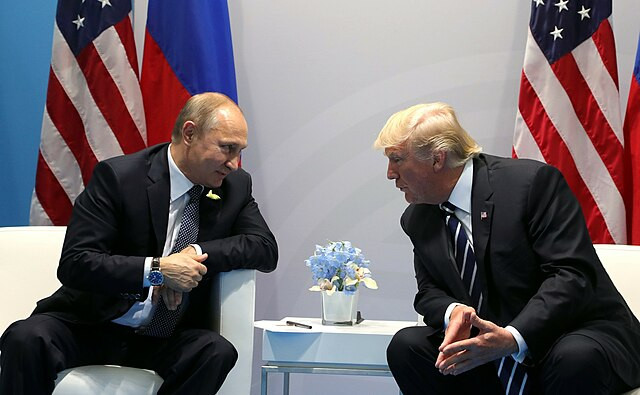Russian President Vladimir Putin expressed readiness for potential discussions with U.S. President-elect Donald Trump, raising speculation about a diplomatic pivot as the war in Ukraine approaches its third year. Speaking during his annual marathon news conference in Moscow on Thursday, Putin addressed a range of pressing issues, including Russia's military objectives in Ukraine, its geopolitical standing, and strained relations with the West.
Putin revealed he had not spoken to Trump in over four years but remained open to dialogue. "I don't know when we will meet. He hasn't said anything about it," Putin said in response to a question from NBC's Kier Simmons. "Of course, I am ready for this at any time, and I will be ready for a meeting if he wants it."
The Russian leader struck a confident tone when addressing the country's negotiating position amid military setbacks in Ukraine and international isolation. "I believe that Russia has become much stronger over the past two or three years," Putin said. "We are becoming a truly sovereign country, hardly dependent on anyone."
On the battlefield, Putin claimed incremental progress. "Movement is going on along the entire front line, every day," he stated, emphasizing that Russian forces were capturing territory in "square kilometers" rather than smaller gains. However, he declined to provide a timeline for retaking areas like the southern Kursk region, where Ukrainian forces continue to resist. "We will definitely push them out. There is no other way," he asserted.
The Kremlin's narrative contrasted with remarks from Ukrainian President Volodymyr Zelensky, who recently admitted that Ukraine lacks the capacity to reclaim all its occupied territories. Putin, however, dismissed suggestions that Russia would compromise its strategic goals, reiterating that Moscow's objectives remain unchanged.
Putin indicated Russia's willingness to negotiate, stating, "We have always said that we are ready for negotiations and compromises." Still, he ruled out any territorial concessions and emphasized that a durable agreement would require legitimate Ukrainian authorities. For now, the Kremlin only recognizes Ukraine's parliament as a legitimate counterpart, casting doubt on the potential for immediate breakthroughs.
The Russian leader also referenced a preliminary agreement reached between Russian and Ukrainian negotiators in Istanbul during the early weeks of the war. While that draft deal was never implemented, Putin suggested it could serve as a starting point for future talks.
Putin's remarks came amid mounting economic pressures and escalating international scrutiny. He acknowledged that the Russian economy was facing "worryingly high inflation" but argued that growth remained stronger than in Western economies like Britain. Still, the conflict's toll has been severe, with tens of thousands dead, millions displaced, and Russia facing its deepest isolation since the Cold War.
The Russian president also addressed a recent killing of a senior general in Moscow, describing it as a "terrorist act" by Ukrainian forces. Putin accused Kyiv of repeatedly targeting Russian civilians and infrastructure, claims that Ukrainian officials have denied.
Trump, who has touted his ability to broker agreements, has vowed to prioritize resolving the Ukraine conflict but has yet to provide detailed plans. While some view Trump's potential involvement as an opportunity for de-escalation, others fear it could lead to concessions that favor Moscow.
Putin's comments suggest he views Trump's presidency as a possible avenue to recalibrate U.S.-Russia relations. However, his insistence on maintaining Russia's territorial gains and sovereignty indicates limited room for compromise.




